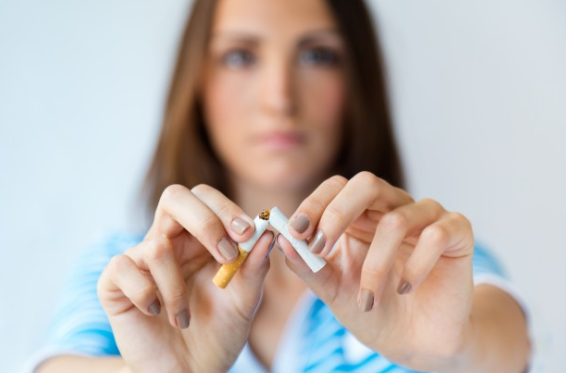What are some unknown facts about smoking?
Over recent decades, thanks to technology, we are able to predict the outcomes of people who are addicted to smoking tobacco. There is a likely chance that you may not have heard some of these facts as they are a bit more in-depth, so let’s share them with you.
As we proceed into the article, we will give you a few light facts that not too many know about smoking, and continue onto the ones that are more hidden. From there, we will tell you the likelihood of you dying from smoking, and how you can stop if you are struggling.
Facts you may not have known
To start off with an important fact, the leading cause of death is an illness caused by smoking and secondhand smoke (according to the WHO). Also defined as the ‘biggest public health threat’, 8 million people a year from around the world die to tobacco smoking-related diseases/instances (or will kill at least half of its users statistically). 1 million of that number is non-smokers being exposed to secondhand smoke.
It is worth noting that 80% of the 1 billion smokers worldwide (15.7% of the whole population!) live in working-class conditions. Tobacco drives people to spend their income on Tobacco rather than basic household or personal needs.
Secondhand Smoke
Definition: Secondhand smoke is when a user smokes tobacco, and when exhaled will become ‘secondhand smoke’ affecting those around the primary user.
When exhaled or burnt, it can fill rooms, vents and even water pipes that end up being harmful to others. It is known that 7,000 chemicals are produced when tobacco is burnt or smoked, whilst almost 70 of them are known to cause some type of cancer.
This, in turn, has many negative side effects. The majority is as if you were the primary smoker. It can suppress the ovary system, reduce sperm count and also affect the pregnancy’s development which can lead to ‘Sudden Infant Death Syndrome’. It is also known that ‘Cardiovascular’ and ‘Respiratory Diseases’ can happen, alongside heart disease and various types of cancer (e.g lung disease or cancer).
Secondhand smoke causes up to 1.2 million people to die each year, 65,000 of them are illness-related in children.
Diseases Caused By Smoking
- Chronic Obstructive Pulmonary Disorder (COPD)
- Lung Disease & Cancer
- Heart Disease
- Type 2 Diabetes
- Liver Cancer
- Erectile Dysfunction
- Ectopic Pregnancy (11% of this are related to smoking)
- Vision Loss (Cataracts & Glaucoma)
- Tuberculosis
- Rheumatoid
- Colorectal Cancer
There are many more, these are just a few to name.
How likely are you to die from smoking?
Statistically speaking, 30% of all cancer deaths are related to smoking, alongside 87% of lung cancer are all related to the smoking of tobacco. For the average male, it is 23x more likely to develop lung cancer for smokers compared to non-smokers (according to livescience.com).
A study by – shows that smokers die fairly young. 23% of all heavy smokers never reach the age of 65. That means on the average life expectancy, people die 13 years younger. This is 11% of light smokers, and 7% of non-smokers (all according to cbs.nl).
It’s never too late to stop smoking. Research shows that your heart rate and blood pressure begins to stabilise after 30 minutes of quitting. After a couple of years, the risk of ‘Cardiovascular Disease’ decreases to the normal level of risk from a non-smoker.
How can I stop smoking?
Here at pillbox, we can give you advice when it comes to stopping smoking, we have an article that you can read about here. It is four times more likely to help than you attempting to stop on your own!
To give advice on how to stop smoking, here are some tips that will self-help:
Have a positive mindset
With a negative one, you will most likely quit off the bat or not make it very far. Convince yourself that you can do it and place yourself in the peace of mind. Self-reflect on mistakes throughout your journey and pick up on those errors, you won’t get it right the first time.
Change your drink
According to PMC, alcohol, tea, coffee and fizzy drinks all affect the taste perception of tobacco. It makes tobacco ‘taste’ better after having one of these beverages, so try drinking more water when attempting to quit.
Take your mind off of the cravings
Take notes on the cycle of your cravings. For example, note down how long the cravings usually last for, and how often they come around. From here, develop some strategies to take your mind off of the cravings.
Distract yourself with something you peaks your interest and you can get invested in, this way you can take your mind off of the cravings. By no means is it easy, and will take some getting used to, but remember the benefits, stay positive!
Distract your mouth and hands
Keep them occupied, especially during the cravings. For example, place a drink or something to do with your hobby in your typical smoking hand, and try chewing gum to distract your mouth.
Nicotine Replacement Therapy (NRT) can increase your chances of success by a lot.




